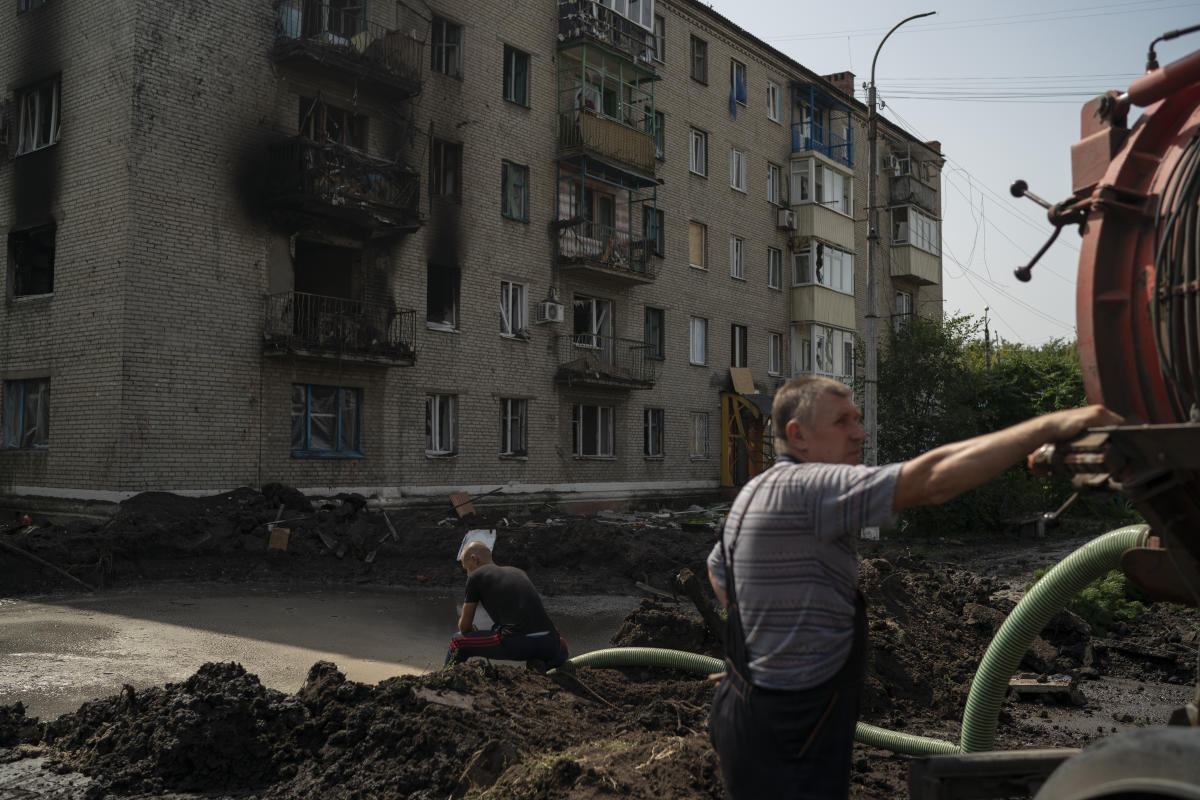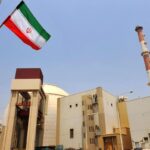
SLOVYANSK, Ukraine (AP) — Russian rocket and artillery strikes hit areas across the Dnieper River from Europe’s largest nuclear power plant, Ukrainian officials said Sunday, as fears persisted that fighting in the vicinity could damage the plant and cause a radiation leak.
Russian forces took control of the Zaporizhzhia Nuclear Power Plant soon after the war began and hold adjacent territory along the left bank of the wide river. Ukraine controls the right bank, including the cities of Nikopol and Marhanets, each of them about 10 kilometers (six miles) from the plant.
Russian Defense Ministry spokesman Igor Konashenkov said Sunday that Ukrainian forces had shelled the plant twice over the past day and that some shells fell near buildings storing reactor fuel and radioactive waste.
Heavy firing during the night left parts of Nikopol without electricity, said Valentyn Reznichenko, governor of the Dnipropetrovsk region. Rocket strikes damaged about a dozen residences in Marhanets, according to Yevhen Yevtushenko, the administration head for the district that includes the city of about 45,000.
The city of Zaporizhzhia, about 40 kilometers (25 miles) upriver from the nuclear plant, also came under fire during the night, wounding two people, city council member Anatoliy Kurtev said.
Downriver from the nuclear plant, the Kakhovka hydroelectric plant and the city adjacent to it were hit by Ukrainian rockets three times on Sunday, said Vladimir Leontyev, the head of the Russia-installed local administration.
The plant’s dam is a major roadway across the river and a potentially key supply route for Russian forces. The dam also forms a reservoir that provides water for the Zaporizhzhia nuclear plant.
In eastern Ukraine, where Russian and separatist forces are trying to take control, shelling hit the large and strategically significant cities of Kramatorsk and Slovyansk, but no casualties were reported, said Pavlo Kyrylenko, governor of the Donetsk region.
Slovyansk resident Konstiantyn Daineko told The Associated Press that he was falling asleep when an explosion blew out windows in his apartment.
“I opened my eyes and saw how the window frame was flying over me, the frame and pieces of broken glass,” he said.
Much of the Donetsk region is held by Russian and separatist forces. It is one of two Ukrainian regions that Russia has recognized as sovereign states.
Authorities last week began distributing iodine tablets to residents who live near the Zaporizhzhia plant in case of radiation exposure, which can cause health problems.
Much of the concern centers on the cooling systems for the plant’s nuclear reactors. The systems require power to run, and the plant was temporarily knocked offline Thursday because of what officials said was fire damage to a transmission line. A cooling system failure could cause a nuclear meltdown.
Russian forces occupied the nuclear plant complex early in the 6-month-old war, but local Ukrainian workers have kept it running. The Ukrainian and Russian governments have repeatedly accused the other of shelling the complex and nearby areas, raising fears of a possible catastrophe.
Periodic shelling has damaged the power station’s infrastructure, Ukraine’s nuclear power operator, Energoatom, said Saturday.
“There are risks of hydrogen leakage and sputtering of radioactive substances, and the fire hazard is high,” it said.
The U.N.’s atomic energy agency has tried to work out an agreement to send a team in to inspect and help secure the plant. Officials said preparations for the visit were underway, but it remained unclear when it might take place.
___
Follow AP’s coverage of the war in Ukraine at https://apnews.com/hub/russia-ukraine




